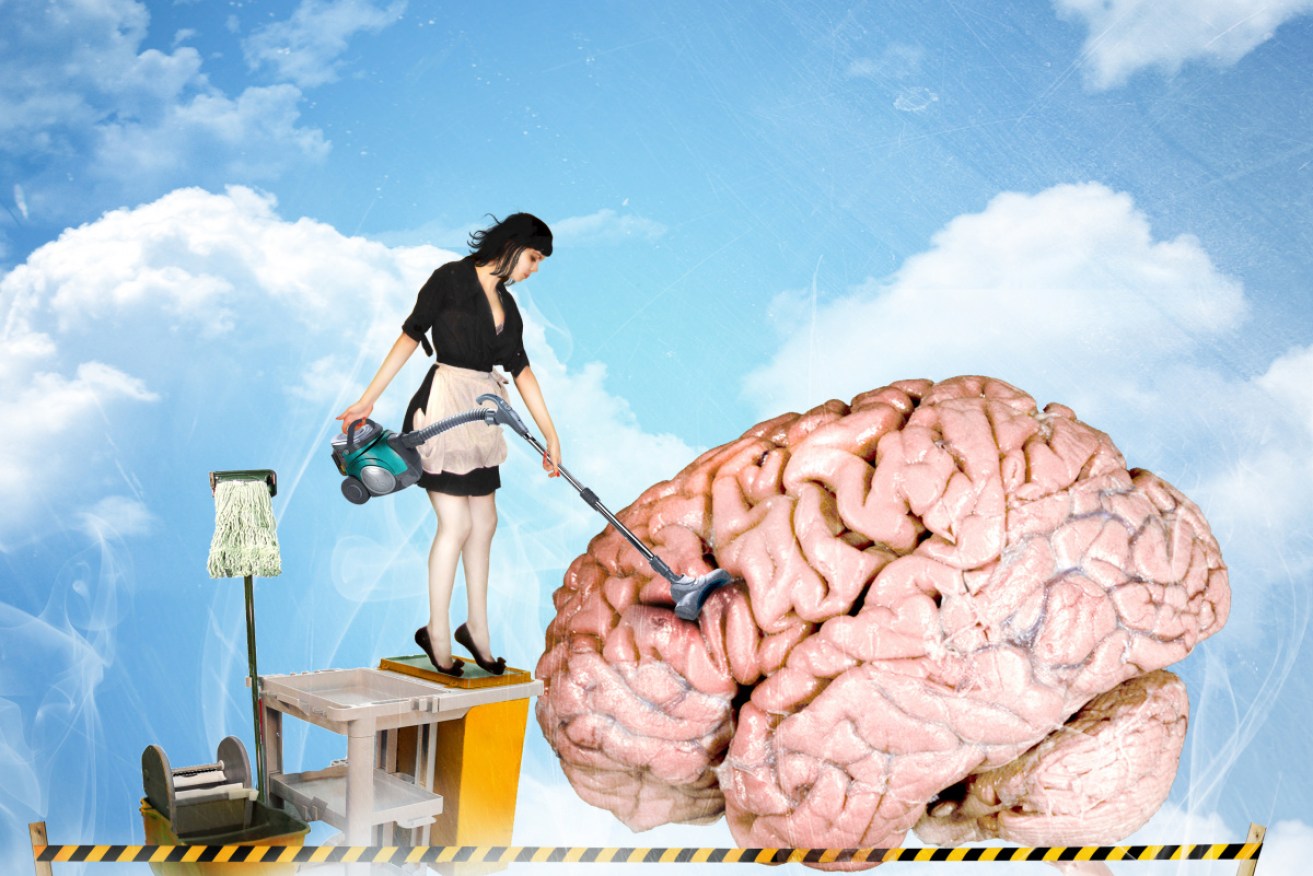The real cause of Alzheimer’s could be treated with existing drugs


As we age, the brain's capacity to clean itself slows down. Fasting and exercise can help. Photo: Getty
When scientists talk about the cause of Alzheimer’s disease, they tend to refer to the accumulation of proteins that clog up and kill brain cells.
These are the apparent mechanisms that shrink the brain and lead to a progressive dementia that robs a person of who they once were.
A new study argues that the actual cause of Alzheimer’s disease is a slowing down of the brain’s ability to clean itself at a cellular level.
The University of California (Riverside) scientists say it’s this failure of the cleaning process – known as autophagy – that is the actual cause of the brain filling up with gunk.
There’s already research in play to find a drug that can restore this cleaning process to full efficiency – and may ultimately help prevent the disease.
Some of these drug therapies include existing treatments for heart disease. If these prove effective at cleaning brain cells, then the approval process by regulators would be significantly hastened.
Two kinds of plaque
The only way to diagnose Alzheimer’s disease with certainty is a post-mortem examination, when the brain is examined for amyloid plaques and neurofibrillary tangles.
The plaques are collections of misfolded proteins that form in the spaces between nerve cells and interfere with brain messaging. The tangles are largely made up of a protein called tau.
But not everyone with these plaques develops Alzheimer’s.
“Roughly 20 per cent of people have the plaques, but no signs of dementia,” said UCR Chemistry Professor Ryan Julian in a prepared statement.
“This makes it seem as though the plaques themselves are not the cause.”
So what’s going on?
Professor Julian and colleagues discovered “a key but difficult-to-detect difference in the form of tau (that) allowed the scientists to distinguish between people who expressed no outward signs of dementia from those who did”.

Differences in tau proteins seem to be the key to Alzheimer’s disease. Photo: Getty
It all came down to a single molecule and the different forms it can take. These different forms of the same molecule are called isomers.
“An isomer is the same molecule with a different three-dimensional orientation than the original,” Professor Julian said.
He likens isomers to our hands: mirror images of each other, but not exact copies.
“Isomers can actually have a ‘handedness’,” he said.
The amino acids that make up proteins can either be right-handed or left-handed isomers. Normally, “proteins in living things are made from all left-handed amino acids”.
When the researchers scanned all the proteins in donated brain samples, they found that those with brain build-up but no dementia had normal left-handed tau while a different-handed form of tau was found in those who developed plaques or tangles as well as dementia.
How does this happen?
Professor Julian said that most proteins in the body have a half-life of less than 48 hours. This means they remain stable (in their left-handed form) for about a day.
Normally, the cleaning process would eat up these aged proteins and dispose of them. If the cleaning process fails, certain amino acids can convert the left-handed protein into the other-handed isomer.
“If you try to put a right-handed glove on your left hand, it doesn’t work too well. It’s a similar problem in biology; molecules don’t work the way they’re supposed to after a while because a left-handed glove can actually convert into a right-handed glove that doesn’t fit,” Professor Julian said.
It’s this shift of left-handedness to right-handedness that causes the tau proteins to become problematic.
The autophagic cleaning process generally slows down in people over the age of 65. The researchers are planning to investigate why this happens.
Autophagy can be induced by fasting. When cells run short on proteins from an individual’s diet, they fill the void by recycling proteins already present in cells. Exercise also increases autophagy.








